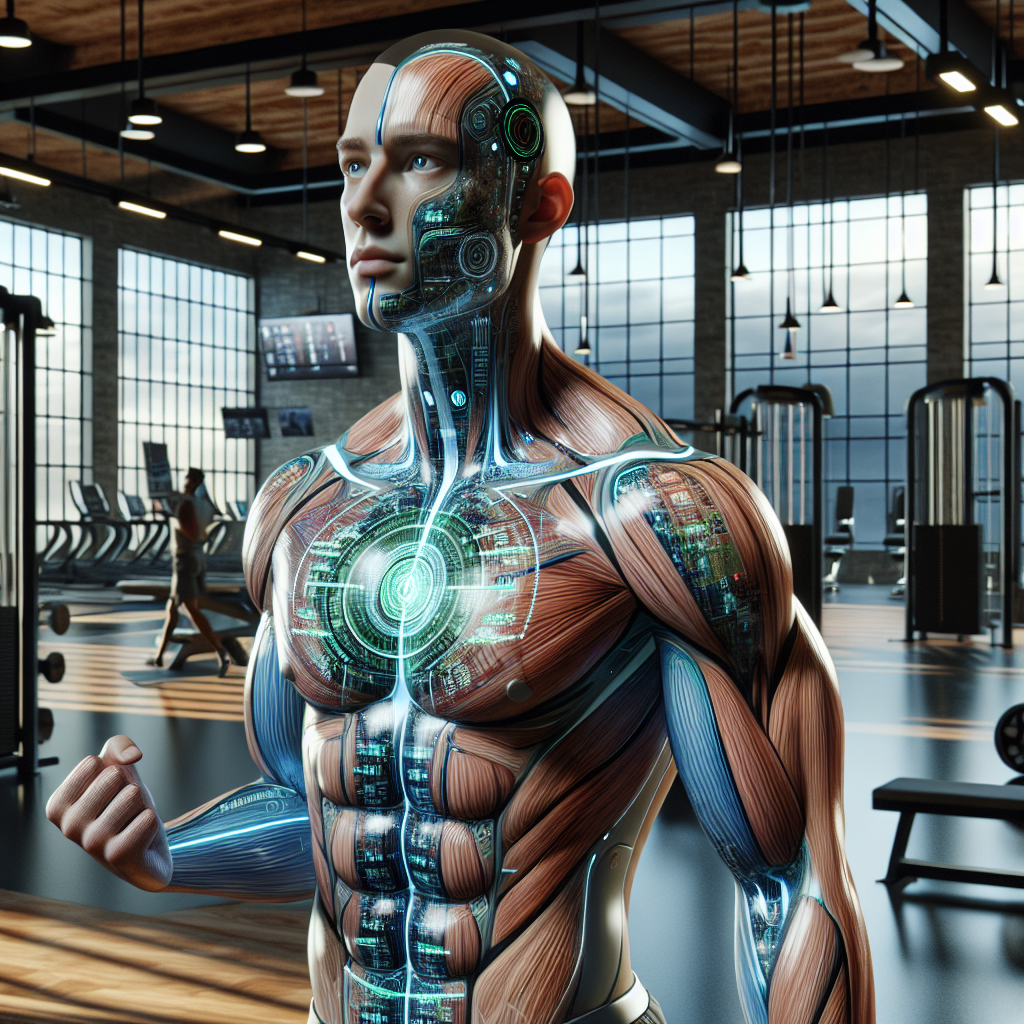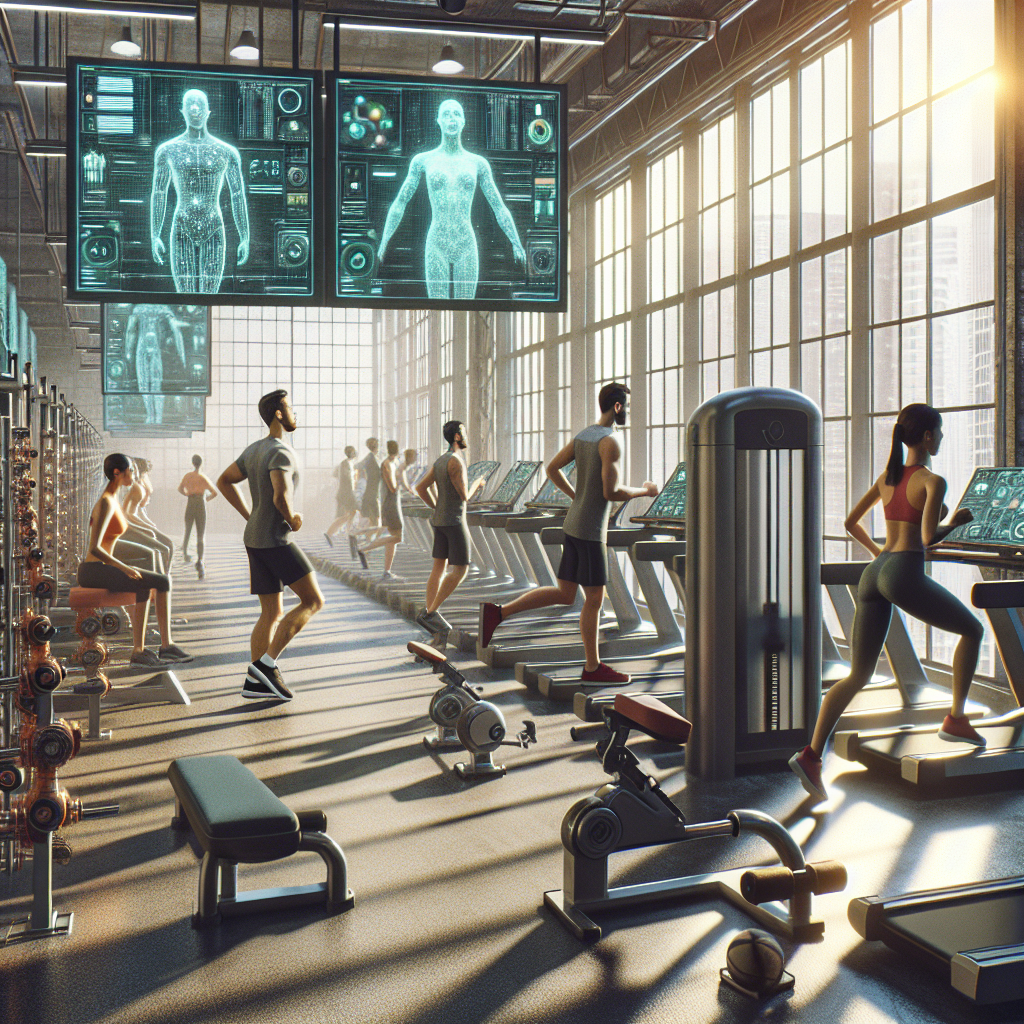Artificial Intelligence (AI) is transforming the fitness industry by creating personalized training experiences that adapt to individual needs, goals, and progress. By 2025, AI-driven personal trainers are expected to revolutionize fitness routines through advanced algorithms, data analysis, and real-time feedback, pushing the boundaries of what personalized fitness can achieve. This article explores how AI is reshaping the fitness landscape, offering insights into its applications, benefits, challenges, and future trends.
Understanding AI-Driven Personal Trainers
AI-driven personal trainers utilize machine learning algorithms and data analytics to create tailored workout plans. These systems analyze user data, including physical capabilities, goals, and preferences, to deliver customized fitness routines that evolve over time. By leveraging AI, these virtual trainers provide a level of personalization that traditional training methods cannot match.
The Core Components of AI in Fitness
Data Collection and Analysis
AI fitness trainers collect data through various sources such as wearable devices, mobile apps, and smart gym equipment. This data includes metrics like heart rate, step count, calories burned, and workout history. Advanced algorithms analyze this data to identify patterns and make informed decisions about the user’s fitness plan.
Machine Learning Algorithms
Machine learning plays a crucial role in AI-driven personal trainers. By learning from past data, these algorithms predict user behavior and preferences, continuously optimizing the workout plan. This ensures that the fitness routine remains challenging and effective, adapting to the user’s progress and any changes in their fitness goals.
Natural Language Processing (NLP)
NLP allows AI trainers to communicate with users in a natural, conversational manner. This technology enables the trainer to understand user queries, provide guidance, and offer motivation, making the interaction more engaging and user-friendly.
Benefits of AI-Driven Fitness Solutions
Personalization and Adaptability
- Customized workout plans tailored to individual goals and fitness levels.
- Real-time adjustments based on user performance and feedback.
- Adaptation to lifestyle changes, injuries, or new objectives.
Accessibility and Convenience
- 24/7 availability of AI trainers, eliminating scheduling conflicts.
- Access to a wide range of workouts without the need for a physical trainer.
- Cost-effective solution compared to traditional personal training.
Enhanced Motivation and Engagement
- Gamification elements to keep users motivated.
- Progress tracking and achievement milestones.
- Community features for social interaction and support.
The Role of Wearable Technology in AI Fitness
Wearable technology is a critical component of AI-driven fitness solutions, providing the data necessary for personalized training. Devices such as smartwatches, fitness trackers, and heart rate monitors gather valuable information that feeds into AI systems.
Data Integration and Real-Time Feedback
Wearables continuously collect data, allowing AI systems to monitor the user’s performance in real-time. This integration enables immediate feedback, helping users adjust their form, intensity, or duration to optimize results.
Biometric Data Collection
- Heart rate monitoring for cardiovascular health assessment.
- Caloric expenditure tracking to manage weight loss goals.
- Sleep tracking for recovery and performance insights.
Connectivity and Compatibility
- Seamless integration with AI fitness applications and platforms.
- Compatibility with various devices and operating systems.
- Cloud storage for data access across multiple devices.
Case Studies: Success Stories of AI-Driven Fitness
Peloton and AI-Powered Cycling
Peloton has incorporated AI to enhance its cycling workouts, providing users with personalized class recommendations based on their performance data. The AI system analyzes metrics like cadence, resistance, and output to create tailored fitness plans that maximize results.
Tonal’s AI-Enhanced Strength Training
Tonal uses AI to deliver strength training workouts that adapt to the user’s progress. The system adjusts weight recommendations and tracks performance, ensuring users are continually challenged and supported in their fitness journey.
Mirror’s Interactive Fitness Experience
Mirror utilizes AI to provide interactive at-home workouts. The system offers personalized feedback and adjustments, allowing users to experience the benefits of a personal trainer without leaving their living room.
Challenges and Limitations of AI in Fitness
Data Privacy and Security Concerns
As AI fitness solutions rely heavily on personal data, privacy and security are major concerns. Ensuring robust data protection measures and transparent privacy policies is essential to gaining user trust.
Technology Adoption and User Experience
While AI offers numerous benefits, some users may face challenges in adopting new technologies. Ensuring a user-friendly interface and providing adequate support is crucial for widespread acceptance.
Accuracy and Reliability of AI Systems
AI algorithms must be continually refined to ensure accurate and reliable fitness recommendations. Addressing any inaccuracies or biases in the data is necessary to maintain the effectiveness of AI-driven fitness solutions.
Future Trends in AI-Driven Fitness
Integration of Virtual Reality (VR) and Augmented Reality (AR)
Combining AI with VR and AR technologies can create immersive fitness experiences that enhance engagement and motivation. These technologies can simulate real-world environments, offering users a more dynamic workout experience.
Advancements in AI Algorithms and Data Analytics
Ongoing advancements in AI algorithms will lead to even more precise and personalized fitness recommendations. Improved data analytics will enhance the ability of AI systems to predict user behavior and preferences accurately.
Expansion of AI Fitness into New Markets
As AI technology becomes more accessible, its application in fitness will expand into new markets, including corporate wellness programs, healthcare, and rehabilitation. This expansion will broaden the reach and impact of AI-driven fitness solutions.
Conclusion: Embracing the Future of Fitness
AI-driven personal trainers are set to revolutionize fitness routines by offering unprecedented levels of personalization, accessibility, and engagement. By leveraging advanced technologies, these systems provide users with the tools they need to achieve their fitness goals effectively and efficiently. As AI continues to evolve, the potential for innovation in the fitness industry is limitless, paving the way for a healthier, more connected future.
Transform Your Fitness Journey Today!
Experience the Future of Fitness with PurelyFit
Unlock the power of AI-driven workouts and personalized nutrition plans that adapt to your needs. Join the revolution and achieve your fitness goals faster than ever before. Discover 600,000+ recipes tailored to every lifestyle and track your progress in real-time. It’s time to get fit smarter, not harder. Sign up now and start your journey to a healthier, happier you!









